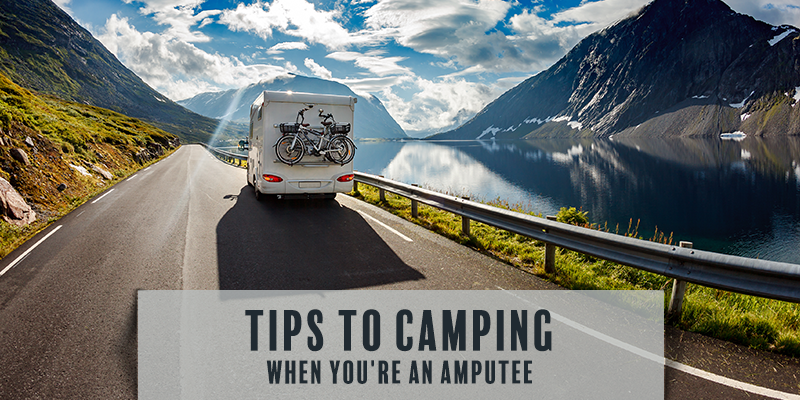With the warmer weather here, it’s now time to be out and about! One of the ways to enjoy this summer is by going camping in the great outdoors. When you’re an amputee, it’s important to come prepared and well equipped. That’s why we came up with the following tips:
- Check With Your Prosthetist
Camping can require a lot of activity depending on where you go, so it’s important to know if your prosthesis can handle that amount of action. You’ll want to talk to your prosthetist to make sure that all parts are intact and will be working smoothly so you don’t run into any problems while exploring.
- Carry The Right Socks
Bringing and wearing the correct socks is crucial to your comfort. High activity can cause unwanted stress on your residual limb if you wear socks that don’t absorb sweat, so wool or synthetic fibers work great for wicking away moisture. As you hike, friction will occur as temperature and sweat levels increase, causing chafing, skin irritation, and blisters. New pressure points may present themselves because they aren’t stressed during normal daily activities, so it’s imperative that you pick the right socks to aid in your contentment.
- Bring Trekking/Hiking Poles
Hiking poles will help you maintain your balance as you make the trek through the wilderness. They will help relieve the stress on your limb and the rest of your body.
- Wear Proper Foot Wear
Wearing supportive, lightweight shoes can help reduce some of the shock to the body when hiking to your camping spot. Discussing this with your prosthetist about what they recommend can help you get started with what shoes to choose.
- Pack Light
Any extra weight on your body will already begin to place stress on it, so it’s important to only bring the essentials. However, make sure to bring tape, extra socks and liners, and plastic bags to put around your prosthesis when near sand or water.
- Protect Your Prosthesis
Make sure that your prosthesis is inside the tent or indoors, so it doesn’t get damaged by dew. If there won’t be a roof over your head, bring a tarp or plastic bag to protect your prosthesis from the elements.
We hope that these tips will help make your camping experience more enjoyable and diminish any possible problems that could occur. If you have any other questions, contact us so we can help prepare you for your adventure!


Recent Comments